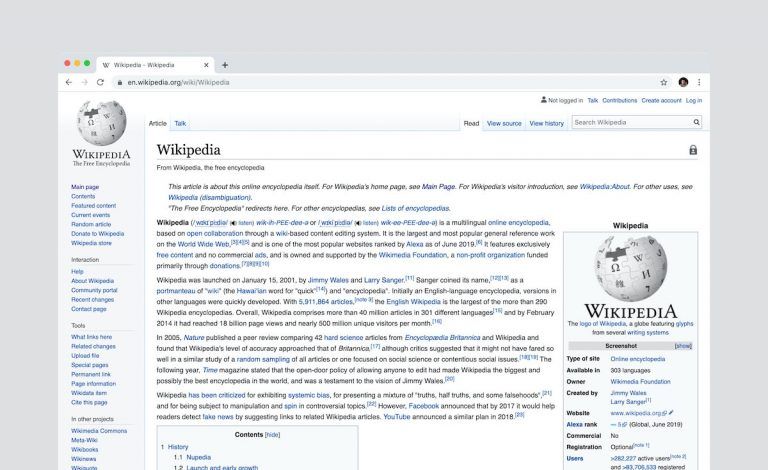What is content marketing? And why is it so important for your SEO success?

Content marketing very specifically stands for a strategic marketing approach focused on creating and distributing valuable, relevant, and consistent content to attract and retain a clearly defined audience - and ultimately drive profitable customer behavior. The Content Marketing Institute sums up these ideas well in the following statement:
"Content marketing is a strategic marketing approach focused on creating and distributing valuable, relevant, and consistent content to attract and retain a clearly defined audience - and, ultimately, to drive profitable customer action."
That is:
The purpose of content marketing is to attract and retain customers through the constant creation and maintenance of relevant and valuable content. This is done with the objective of changing or improving consumer behavior.
At best, it's an ongoing process that is ideally tightly integrated into your marketing strategy.
Content marketing is all about information. It is only through the dissemination of educational, entertaining or insightful information that it is even possible for a company or brand to have a positive impact on a potential customer's life. This can translate into changing his or her behavior or, as most marketers hope, into a purchase decision. The point is not to force a sales pitch on people, but to show them the best way to do something (which may simply mean using your services).
Content marketing vs. inbound marketing
If you've read some of our content, you'll probably have noticed that we use the term "inbound marketing." Content and inbound are often used interchangeably, but to avoid misunderstandings, we'll explain the difference.
The difference between inbound marketing and content marketing depends on who you ask. A HubSpot survey found that most marketers think content marketing is a subcategory of inbound marketing.
Upon closer examination, it becomes clear that content marketing refers to the communication of knowledge, advice, or entertainment in a consumable format such as those in the following list:
- Blog article
- Videos
- Podcasts
- Emails
- Webinars
- Infographics
- Assessments
- Quiz
- Surveys
Inbound marketing, on the other hand, is more focused on the use of tactics that come into play to generate content marketing, nurture it, and get recruited prospects to buy. It encompasses all aspects of digital marketing and sales.
Another difference between content marketing and inbound marketing lies in their objectives. Content marketing is aimed at a broad "target audience," while inbound is aimed at specific "buyer personas.
Blogging is the foundation of content marketing
Blog articles are the pioneers of content marketing. Blogs have become both a common medium in the business world and have arrived in the middle of society. They make it possible to access quality information for free. Blogging companies are inevitably perceived as industry experts, provided they share informative content through a business blog. This way, their visitors will not only return to the blog regularly, but can also become potential buyers. By providing freely accessible content, a company can build trust with its readers; after all, you are giving them industry tips and information for free.
eBooks, videos and emails
Blogs are just the gateway to other content marketing media. Blog articles are often at a disadvantage because they deal with industry topics in a partially detailed yet brief manner. Other forms of content marketing serve as a more substantial means of sharing information and converting readers into customers.
eBooks make it possible to provide an extensive amount of information that can affect different aspects of your business. They usually focus on the most frequently asked questions about a business and can provide detailed information, which can steer readers in the desired direction.
Videos are often a nice change of pace and more appealing to individual buyer personas. Try your hand at it, because well-produced videos tend to go viral, which can drive all kinds of traffic and attention to your brand.
Content marketing is often done in the hopes that companies can obtain their readers' contact information. Whether readers subscribe to your newsletter or simply fill out forms to access eBooks or other helpful tools, in each case they grant you future contact opportunities by providing you with their personal information and mail addresses.
How long does it take for content marketing to work?
The benefits of content marketing for search engine optimization (SEO)
There are many things you can do to improve your search engine optimization. However, nothing is as important as the impact of content marketing on your website's SEO performance. This is also quite logical: in short, content is nothing more than information. Google strives to match the highest quality and most relevant information with its users' search queries. If your website doesn't have this relevant information, you have no chance of grabbing a good ranking and being found.
Your search engine ranking is based on certain keywords in your written content. More content means more keywords and that, in turn, means you have a better chance of ranking well in Google rankings. Therefore, effective keyword research is essential for successful content marketing.
The other important factor in SEO is backlinks. When other websites link to your website, Google considers you a reputable source and ranks you high. What is the easiest way to get backlinks? You'll be able to guess - produce good content that educates and entertains your readers and that they will want to link to and share. On the other hand, if you have a problem in content production, ask for people who know about this. Some ghostwriters and copywriters specialize in strategic content creation and can offer you appropriate solutions. Dr. Ralf Friedrich puts it this way:
"Successful texts don't just sound nice; they inform, engage and sell. Many entrepreneurs lack the time to deal with researching content, writing and integrating marketing-relevant texts outside of their core business. A ghostwriter can provide an effective way to outsource this task - invisible to the reader - and thus also come to the aid of the marketing department."
Last, but not least: Google prefers websites and resources that are constantly updated. So, if you publish content regularly, your website is likely to rank much higher than those that resemble a news graveyard. If you stop producing content, Google will assume that your website is outdated, so you will be devalued in the ranking to avoid searchers linking to mediocre content.





